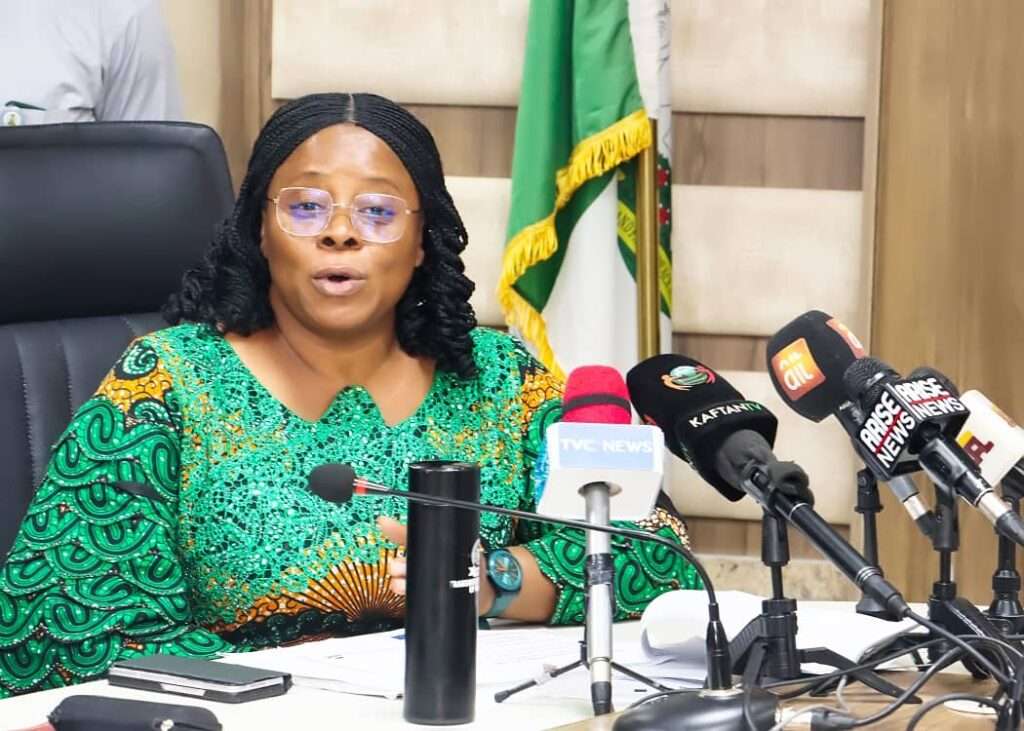The Transmission Company of Nigeria (TCN) has successfully commissioned 48 new transformer projects across the country, significantly enhancing the nation’s power transmission infrastructure.
This large-scale initiative has increased Nigeria’s total transmission capacity by 4,928 megavolt amperes (MVA), equivalent to an additional 3,942.4 megawatts (MW) of electricity added to the national grid.
The milestone was announced in a statement signed by TCN’s General Manager for Public Affairs, Mrs. Ndidi Mbah, who reaffirmed the company’s commitment to modernizing and expanding Nigeria’s transmission network.
These efforts are a part of TCN’s broader Transmission Rehabilitation and Expansion Program (TREP), which aims to strengthen grid reliability and ensure stable electricity delivery for economic and social development.
“The transformer projects are integral to TCN’s reinforcement and rehabilitation efforts aimed at enhancing the capacity of its substations.
“This allows them to supply more bulk electricity to Distribution Companies’ load centers across the country.”
Mrs. Ndidi Mbah, TCN’s General Manager for Public Affairs
The new transformer installations are part of TCN’s flagship Transmission Rehabilitation and Expansion Program (TREP). This program seeks to modernize aging infrastructure, incorporate advanced technologies, and expand the transmission grid’s reach nationwide.
TREP is supported by multilateral financial institutions and is a cornerstone of TCN’s strategy to reposition Nigeria’s power sector for sustainable growth.
The TREP initiative reflects TCN’s long-term vision to create a robust, reliable, and efficient electricity transmission network capable of meeting Nigeria’s growing energy demands.
The Federal Government has played a pivotal role in supporting TCN’s infrastructure expansion efforts. Recognizing electricity as a driver of national development, the government has prioritized investments in the power sector to achieve stable and affordable energy access for all Nigerians.
In 2022, as part of the Nigeria-Siemens power deal, two 132/33 KV mega transformers arrived in the country for installation. This partnership between the Nigerian government and Siemens aims to address critical challenges in the power sector, including inadequate infrastructure, high energy losses, and transmission inefficiencies.
The Siemens deal is part of the Presidential Power Initiative (PPI), a multi-phase program designed to upgrade Nigeria’s electricity system from generation to distribution. These projects complement TCN’s ongoing efforts and are expected to further enhance the grid’s capacity and reliability.
Impact on Power Supply

The newly commissioned projects are expected to resolve ongoing challenges such as power rationing in various regions. Areas previously experiencing erratic electricity supply are now set to benefit from increased stability and improved distribution.
“With the additional power transformers in TCN’s substations, power supply rationing recently experienced by customers of Ikeja Electricity Distribution Company around Odogunyon and Ikorodu, as well as customers of Enugu Distribution Company around Enugu, Nkanu, and Aninri, will be a thing of the past.”
Mrs. Ndidi Mbah, TCN’s General Manager for Public Affairs
Additionally, communities under the Abuja Electricity Distribution Company and Kaduna Electricity Distribution Company—including Suleja, Zaria, and Bida—will experience substantial improvements in power reliability.
The commissioning of 48 transformer projects in 2024 marks a significant milestone in Nigeria’s journey toward achieving a reliable and efficient electricity supply.
With an additional 3,942.4MW of power added to the national grid, millions of Nigerians are expected to benefit from improved access to electricity.
As TCN continues to implement its Transmission Rehabilitation and Expansion Program, collaboration with stakeholders—including the government, private sector, and international partners—will be critical in overcoming challenges and driving sustainable development in Nigeria’s power sector.
The Federal Government’s support, coupled with strategic initiatives like the Siemens deal, underscores a collective commitment to addressing Nigeria’s energy challenges and ensuring a brighter, electrified future.
READ ALSO: Central African Republic Deepens Ties with Russia




















